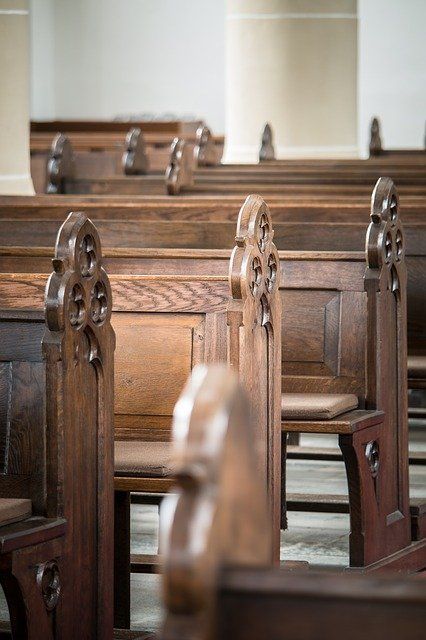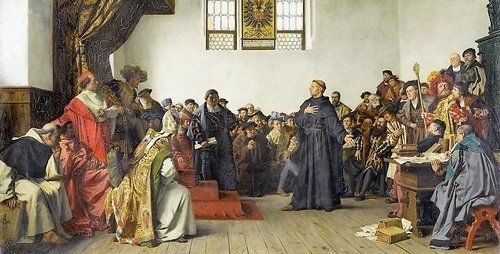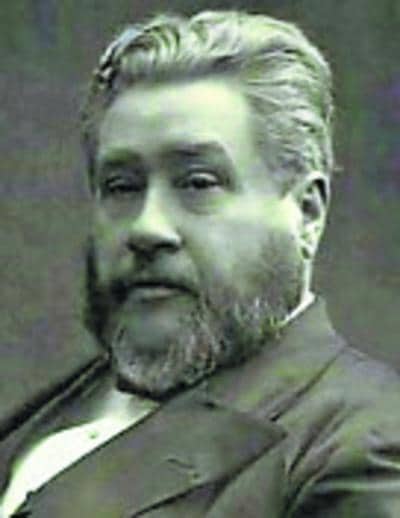And just what is the gospel? Now before you are tempted to move on to the next article rather than waste your time reading one that asks such a naïve question, let me urge you to pause a while and hear me out.
Why ask the question at all? Surely we who are evangelicals know the answer? Well, do we? There was a time when I would have gone along with your reaction, but no longer. Signs are not wanting in a number of areas indicating that the evangelical constituency is no longer the monolithic theological structure it has often been caricatured to be.
Fault-lines
Of course, anybody who has even the flimsiest knowledge of religious history in our country will be aware that there has always been a measure of dissension and strife between those who argue that they belong to the same spiritual family. But usually those fault-lines have appeared more around the periphery than at the core. But I query whether that is the case any longer.
Sometimes history seems to move in cycles. It matters not whether you accept Hegel’s alleged dictum that ‘history teaches us that history teaches us nothing at all’. It is a fact that there is something curiously repetitive about the present scene in evangelicalism. Let me explain. At the risk of putting my theological reputation on the line, I would be prepared to argue that a century and more ago, at least some of the early theological liberals were truly converted men. They were right in their hearts but became muddled in their heads. As a result, they eventually allowed an otherwise commendable desire to communicate the gospel to a rapidly changing society to lead them astray.
Consequences
The consequences have been devastating for the cause of God and of truth. It is not difficult to understand how it happened. Partly it was a reaction against the ever-present danger of the church ossifying in traditional forms, derived from ecclesiastical culture rather than the Bible. Add to that the difficulties posed by a population rapidly ascending the educational scale, increasingly dominated by evolutionary optimism, and losing its rural roots as urbanisation proceeded apace.
The attendant social pressures, dramatically presented by novelists of the period, simply added to the general feeling of disquiet and led to a willingness to think and say the previously unthinkable. What has become known as ‘liberalism’ spawned a modernism which swept through the churches.

Once a breach had been made in the formerly impregnable wall of Scripture, several features became prominent. Its verbal inspiration, infallibility and authority were first questioned, then denied, usually by laying emphasis on the very humanity of the book and its writers. Other inroads soon followed. Could a God of love really consign some of the human beings he had created to a place of endless torment?
A larger hope
To ask the question was to answer it in the negative. It was but a short step from this to holding out a ‘larger hope’ of salvation, as it came to be called. This hope, if not for all then at least for some, applied to ‘the heathen’, as they were called before the advent of ‘political correctness’. This, in turn, was to have pretty radical repercussions as far as the uniqueness of the Christian message was concerned.
Was it not something derived from imperialistic and western arrogance, that assumed that Jesus Christ was the only way to God? What about all those virtuous men and women of other faiths and none? Were they not part of the ‘other sheep I have, which are not of this fold’? No thinking person can deny that almost unbelievable changes have been wrought in the moral outlook and lifestyle of the nation at large, stemming from such views.
Religious freaks?
Amazingly, it seems that for once the pew listened to what it heard from the pulpit and systematically put it into practice. One result that surely was not anticipated by the original propagators of such philosophies has been that the man in the pew has virtually ceased to exist as far as the nation at large is concerned. There has been a total collapse of the religiosity that once characterised the average citizen.
And a good thing too, do I hear you saying? I agree, insofar as it represents an abhorrence of hypocrisy. But things are not quite as simple as that. Who bothers these days to ask a

minister or clergyman for a job reference? Having one from such a person might be more of a liability than an asset in any job application! To say that someone is honest, decent, reliable, moral and hard-working probably marks him or her down as one of those weird religious freaks — and we can do without the likes of them in the office, thank you very much!
Vanishing concepts
To speak of the tremendous upheaval in public and private morals that the century has witnessed is probably to use inadequate terminology. If ever the concept of a ‘U-turn’ applied, it is surely in this area. The passing decades of the century, with a rapid acceleration from the 60s onwards, have witnessed nothing less.
Marriage is fighting for its continued existence as a commendable and normal lifestyle. Successive governments of whatever political hue have done nothing to promote it. And the social services (and ultimately the taxpayer) pick up the bill. An aggressive homosexual-lesbian lobby twists the media around its little finger. It is no surprise that a House of Commons that (with apparent approval) has witnessed the presence successively of at least four known homosexuals in the Cabinet is set on lowering the age of consent for homosexual acts between consenting partners to sixteen.
Other more ‘normal’ sexual aberrations abound on both sides of the political divide. Concepts of justice and good old ‘fair play’ are in great danger of disappearing over the horizon. Men father children indiscriminately and then disappear, not always to the disappointment of their (usually teenage) partners. With no concept of ‘fault’ in the break-up of marriages, one hears of heart-rending stories of men being ‘taken to the cleaners’ by their erstwhile spouses who were responsible in the first place for the break-up, but who now walk off with the marital home and the children. And so one could go on with this catalogue of woe.
Perfect backdrop
I mention it, and indeed itemise some of its particulars, not to set the pious ‘tut-tutting’, nor to provide ammunition for those who believe that evangelicals never could cope with anything other than a puritanical society. Rather, it is to remind us of where we are and, insofar as we can understand it, how we have got here.
Put in New Testament terms we really are in a Corinthian situation. Romans 1 and 1 Corinthians seem to be the perfect backdrop against which the drama of our times is being played out. Which brings me back to where I began — the nature of the gospel, and when will we learn from history?
What I find most disturbing about the whole situation is not the world out there. That has always basically been the same. It has its relative ups and downs, periods of nobility and eras of decadence, but essentially it is always the same, glaringly in need of redemption. But it is the church — and the evangelical church in particular — that should give us greatest cause for concern.
Rerun
My contention is that at the tail-end of the twentieth century, many of her leaders seem intent on providing us with a rerun (with a few cosmetic refinements) of what happened a century or more ago. And it all boils down now to what you mean by ‘the gospel’, just as it did then.

Did the Reformers really get it wrong in placing such an emphasis on justification by grace through faith, as the very essence of our salvation? Is justification forensic and, if so, does it entail a legal fiction? In other words, has it to do with our legal standing before God, or the renewal of our nature within? Were Luther, Calvin et al, and their Counter-Reformation equivalents, really on the same side, if only they had had the sense (given us by twentieth-century hindsight) to see it?
That, in essence, is what not only the Anglican-Roman Catholic International Commission, but also what some prominent evangelical scholars, seem to be saying. Of course, we draw our creed from the Bible, not from Protestant tradition, however esteemed that might be. But do we really believe that not only we, but the whole Protestant consensus from the Reformation onwards, have made so basic an error as this? It is an issue of the gospel. Nothing less.
Good works
And where do good works fit into all this? Few of us can fail to be touched by the terrible scenes of suffering through natural disasters or man’s cruelty or folly that we witness repeatedly on our television screens. Moreover, we are glad that there exist international Christian agencies, many of them distinctively evangelical, that seek to minister to such material needs.
But is social reform together with works of mercy and compassion part of the definition of the gospel? To say that they should be a part of the consequences of the gospel is one thing — and that unexceptional — but to import them into the definition of the gospel itself is another. Yet you do not have to search far to find evangelical voices that seem to be doing just this.

Finally, the ultimate issues — eschatology. I do nor refer to the pre-, post- and a-millennial varieties, that traditionally have made many decidedly hot under their theological collars! I mean such basic matters as hell — does it exist and, if so, what can it be like? How dare God posit the existence of such a place? Would it not be a contradiction of all that we know about him? Is the soul really immortal, or is that another relic of Greek philosophy encumbering Christian thinking? Are the lost really lost? Could it be that Grace Baptists and Westminster Presbyterians (not to mention Prayer Book Anglicans) will be rubbing shoulders with pious Hindus and virtuous Muslims in heaven — together with innumerable other individuals who never in this life believed in the Lord Jesus Christ?
In other words, was Spurgeon’s embarking on the Downgrade Controversy not so much the biggest heartache of that good man’s ministry but the most misguided theological blunder of the nineteenth century? I simply raise the questions this time, and hope to address them next month. But make no mistake; these are gospel issues.















